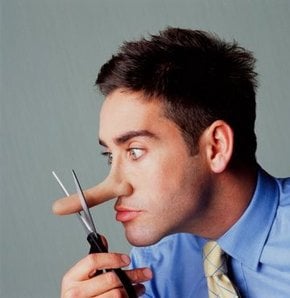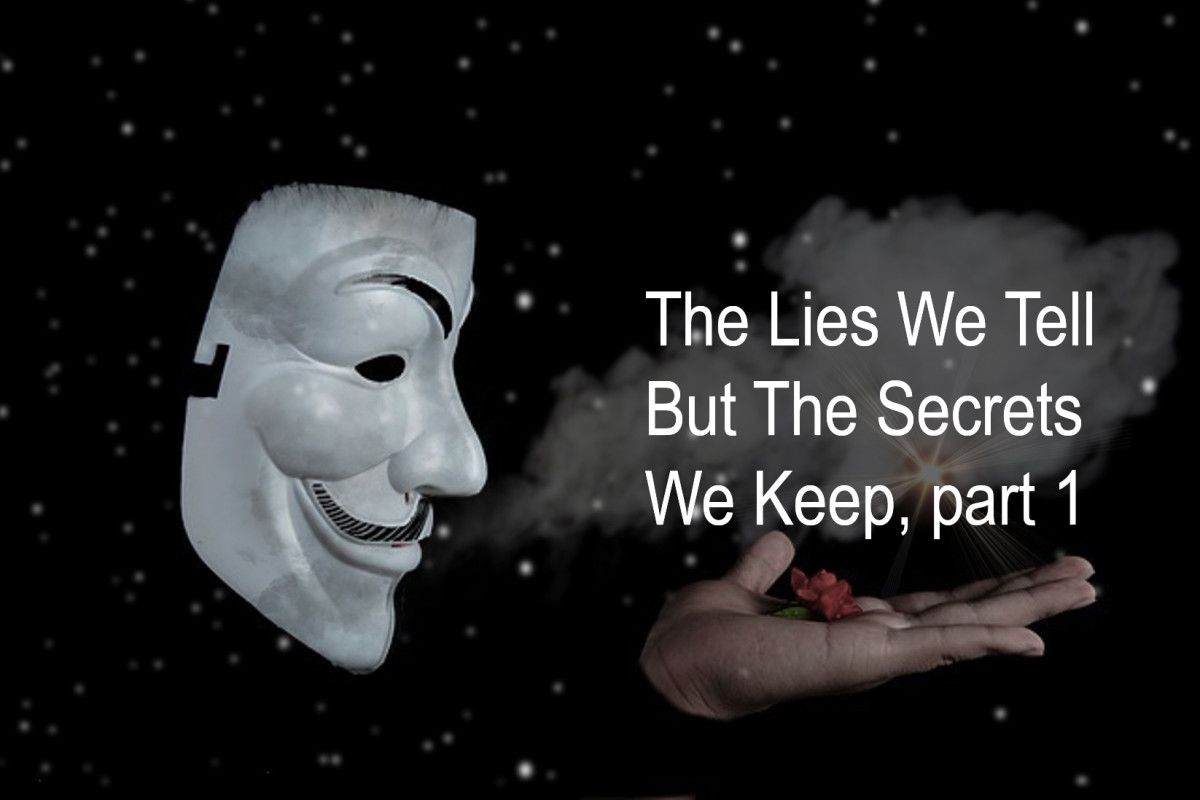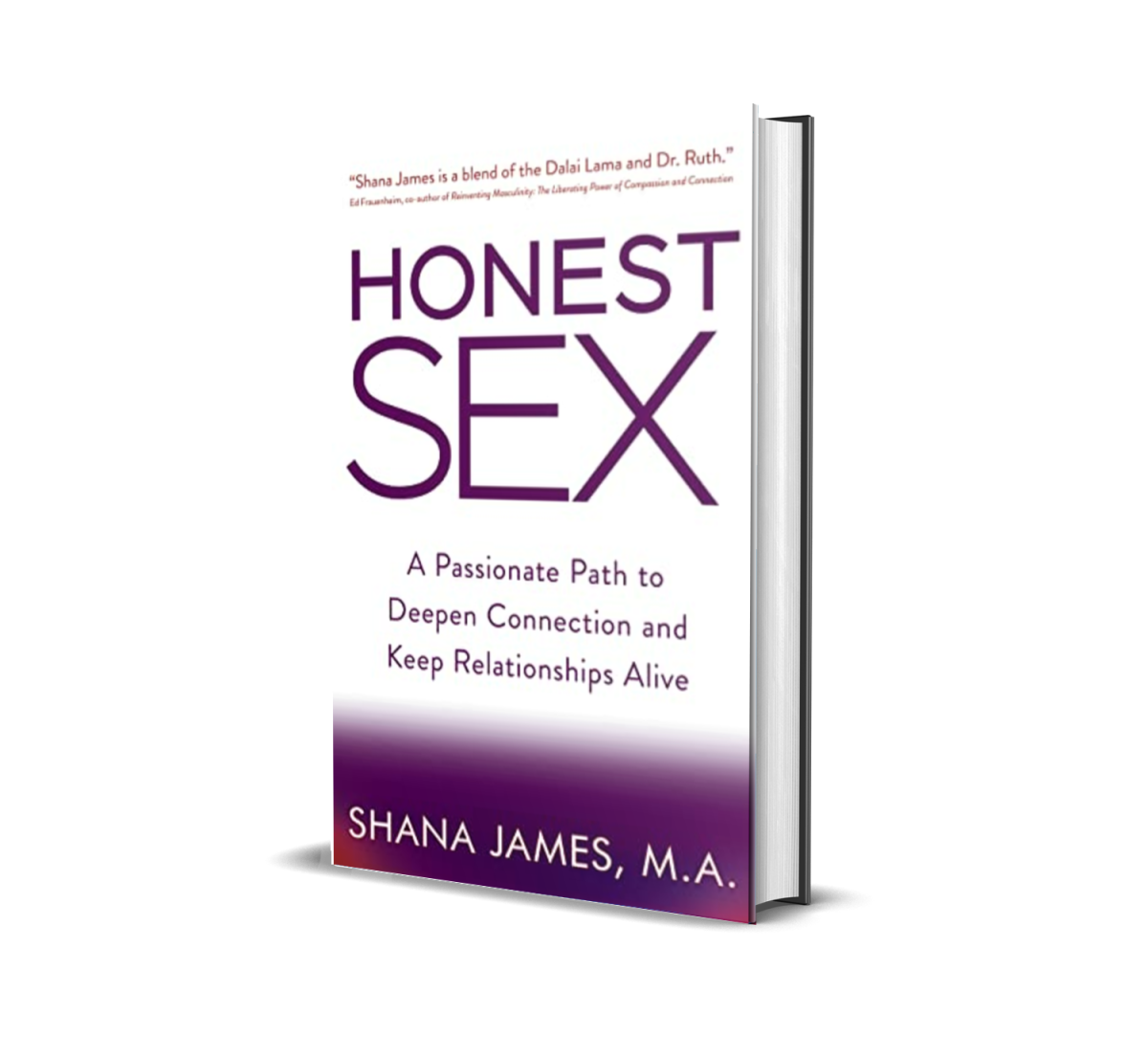Radical Honesty - Telling The Truth? Are We recycling Werner Erhard and EST?

Simone Smith wrote an interesting hub on radical honesty where she discusses whether or not we should be honest all of the time, and how the internet is forcing more honesty onto us than we would otherwise show.
She wrote of Dr. Brad Blanton's belief that lies are a significant source of our stress, and his teaching that we should abandon all lies, and tell only the truth, no matter what the circumstances. That includes if the truth is considered blunt, hurtful or rude.
I checked on Dr. Blanton, and even though I probably wouldn't enjoy a conversation with him, I thought he was a real character. I thoroughly enjoyed A. J. Jacob's article in Esquire Magazine about radical honesty and his interview with Brad Blanton.
By-the-way, in his typical, honest fashion, Blanton says that he does lie sometimes - to the government, on his taxes, in poker, and in golf. He said that he'd also lie if he was talking to a Nazi and he had Anne Frank in his attic - than God!
For myself, as an ideal, telling the truth at all times sounds like a great concept. However, in practice, I think it can get extremely weird, and I have to vote against it.
I was around in the 1970s when Werner Erhard was doing a different version of what Dr. Blanton is doing now - encouraging people to say what they want to say, no matter how others feel about it.
The big difference between the two is that those who followed Erhard were also encouraged to do whatever they wanted, and to be guilt-free regarding both their words and actions. They were taken through a boot camp training that was called self-empowerment, but which contained some tactics that are now recognized as cult building (12 hour classes, closed room, one meal, humiliation, etc.). The people who emerged made other people miserable, and made themselves a lot of enemies. (The book listed below, Outrageous Betrayal, is a great expose of Erhard's career.)
Steve Jobs and the folks who followed him at that time at Apple were heavily involved in Werner Erhard's teachings. EST training fit Steve Jobs' style at that time in his life, and those who wanted to be like him followed him in practicing it. Around Apple, they were known at estholes.
I met a few EST practitioners where I worked, and later on campus at the university I attended. It was easy to tell these people from those who were simply dysfunctional, because these folks did their worst with sparkling conviction and condescending self-righteousness. The esthole label followed them with the naturalness of breath leaving the lips after a person dealt with one of them.
I would have thought that we would have learned from that debacle. But I guess not. It seems that in every generation, knowledge of the previous generation's mistakes fades very quickly, and self-styled experts come along to fill in the gap (the biggest difference between the Blanton and Erhard self-styled experts is that Blanton doesn't seem to take himself very seriously).
They are then able to make a lot of money by telling us to say what we think, even at cost to those around us. After all, that's what we secretly want to do. Why wouldn't we pay someone to tell us it's ok to do it?
A Dose of Blanton the Politician - Refreshing?
The basic problem is that we can't give people the right to tell the truth whenever they want, based only on the fact that it is the truth. Human nature has three strong tendencies that preclude our telling the truth all of the time.
- Some people get a real kick out of hurting other people's feelings. They do that often enough, without having it sanctioned.
- Too many others don't have the simple common sense that will tell them when to talk and when to shut up. (That includes Dr. Blanton. As you can see from the video below about his two runs for Congress, he definitely gives more information than was requested.)
- If we were being honest with ourselves, most of us wouldn't want to be on the receiving end of what we'd have to say if we were constantly telling the truth.
Yes, it's true that people can be phony to the point that those around them want to shake the truth out of them. I have to admit that people who are endlessly nice are one of my pet peeves. Sometimes I have to hold myself back from grabbing them by the shoulders, wrenching them back and forth, and snarling, "Out with it, damn you. Just once, say what you're thinking!" I stop myself because I know that it takes a lifetime of training to be that phony, and my insisting on the truth would be very unsatisfying, because I wouldn't get it. If these poor waffling wet noodles ever knew what a true opinion was, it was bullied out of them years ago by proper social training.
However, I don't want anyone to take my right to tell a lie away from me. I don't mean about the important things. I mean about the little things we lie about every day.
If I'm feeling low one day and I don't think it's anybody's business but mine, I have the right not to say that I'm feeling low. It's called my right to privacy. I'll say, "Fine", if I want to. And anyone who doesn't like it can piss off.
I also want to have the right to make a nice pleasantry by asking another person, "How are you?" without being stopped for a full-blown sob story. Some people make a hobby out of lamenting our asking people how they are, when we don't really want an honest answer. Well, if these same people were being truthful, they'd have to admit that the honest answers are usually reserved for close friends, behind closed doors, and deservedly so. The honest answer shouldn't be given to a pleasant grocery clerk whose name you don't even know, at a cash register with a line behind you.
We ask how someone is because it's as natural as smiling to show another person we're harmless. It provides a little charm and politeness. It's like saying "Please" or "Thank you". It shows a little caring, maybe on a minuscule scale, but it's better than nothing.
Besides, most people would be horrified to ask how someone was, and to receive the whole gory truth. I used to work with a guy who was especially inept socially, and who constantly complained about his life. He was sure that everyone who asked him how he was wanted the details. He did a great deal for employee health, because people took the stairs whenever they saw him take the elevator. He was known as the "tmi" guy (too much information).
Now I know that in a radically honest society, this poor schmuck would have been told, "Oh, God, are you going to complain again? It's so boring!". What good would it have done for him to be told something like that? The context was work. Would it have improved the work environment? No, it wouldn't have. He had a way of doing poor work for anyone he didn't get along with. Besides, life is a little more pleasant for this poor misfit guy because he can fool himself that he's liked by a lot more people than he really is.
I also want the freedom to tell a white lie. If a friend looks dowdy in an outfit and I can see she wants to be told she looks good, I'll consider which would be best at the moment for her. She's placed the decision in my hands by asking me, so I have the right to be a friend and decide.
Would it be better to tell her something else would be a wiser choice, or would it be better to tell her that she looks fine. If I know that another friend has just committed radical honesty, and told her she's a frump, I'm going to vote for, "You look just fine." She wouldn't need another person she cares about taking her self-confidence through a meat grinder.
However, if she's going to an appointment, and it's important for her to look her best that day, I'll say, "I think another outfit would suit you better today." I consider that internal debate to be part of my duty as a friend, or co-worker, or sister, or whatever other role I'm in at that moment.
If we never lie, we lose a lot of the lubricant that keeps society running as smoothly as it does. Being charming or sociable may not be truthful, but it's more considerate, some of the time, than the truth is.
Suppose that I feel like being mean to someone and I'm pleasant to that person anyway, because I know I'd want someone to be pleasant to me in the same situation. That would be a lie. If I should have said the mean thing I wanted to say, because that was my truth, then why do I always feel better for having been pleasant instead of mean? If I should have been mean because I should have been truthful, wouldn't I feel lousy for having curbed my nasty tongue and smiled?
Versions of the Golden Rule, where we're asked to do to others as we would have them do to us, or on the negative side, not do to others as we wouldn't want them to do to us, have been recorded by almost every culture since ancient times. The first one was found in ancient Egypt. Being reciprocal in how we treat each other is not only considered the best way to behave, but it's the standard that many cultures use to resolve conflicts.
We need to consider how we really want to be treated, complete with the little white lies and omissions that we really don't need people to be so truthful about.
What's your vote?
Do you want to hear everything that someone else is thinking?
Update: After I published this hub, I received comments from four different people who had been through the EST training. All of them were people who had enrolled in HubPages specifically to respond to my hub. All of them swore by it. And most of them were pretty ugly in their responses. One guy wrote three different comments on his first try. Some of them have actually written to my email address.
I denied all but the comments below, and flagged a couple of new profiles for review as abusive. (One person revised his response and was civil, which I appreciated.)
My issue with EST was never whether or not people received something they valued from EST training. My issue has been with how other people were treated after someone went through the training.
Sadly, the ugly, aggressive tone of most of the comments I received after publishing this hub did nothing to change my mind.
Second update: I'm closing comments on this hub. I never thought I'd do that, but I have received an amazing amount of comments from EST graduates. I've allowed the reasonable ones through, but have finally grown tired of the long-winded and sometimes aggressive comments I've received. Every EST graduate who has commented has enrolled purely to comment. I wouldn't mind that if they weren't saying the same things over and over again, and if some of them weren't sending message after message. One of them has sent 10 comments under two different names, and has even emailed me.While that person wasn't the only one to email me, he has been the one who was aggressive about it.
I don't mind disagreement, and I don't mind debate. But I do mind what's been happening here.
A. J. Jacobs interview with Brad Blanton
- I Think You\'re Fat - Esquire
This story is about something called Radical Honesty. It may change your life. (But honestly, we don't really care.)










